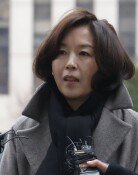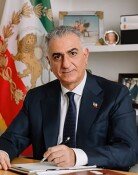[Editorial] Political Participation
[Editorial] Political Participation
Posted March. 26, 2007 07:13,
With no strong candidate emerging in the ruling camp, a Grand Coalition Roundtable will be launched with the participation of reformist religious leaders, presidential candidates from the ruling camp, and political party leaders. The launch is being driven by pastors and monks belonging to the Association of Clergymen for Korean Reconciliation and Reunification.
Some say that the history of civilization is a long process of separating religion from secular politics. The countrys clergy participated in democratization under the authoritative government, which made sense. However, 20 years after democratization, one could view clergys participation in real politics as taboo. If reformist clergymen take the lead in uniting the ruling camp, their conservative counterparts could also unite, chanting, Bring an end to a leftist administration. This could lead to the division of the religious circle over secular politics, which is undesirable.
Those preparing for the launch of the association are reportedly planning to have former Seoul National University President Chung Un-chan and Yuhan-Kimberly CEO Moon Kook-hyun as its members. Chung evaded questions about his candidacy, while effectively campaigning for his candidacy by touring the country, giving lectures. He is no different from other "polifessors" who sit on the both sides of the fence.
He repeatedly made remarks about his hometown, such as, I owe a lot to my hometown Chungcheong Province, so Im going to pay it back, and, Those from Chungcheong Province have played a central role in the country. He seems to think that he could be the candidate supported by the western part of the country, by combining the image of the ruling camp rooted in the Honam region and his background. Given that even existing politicians refrain from sparking regionalism, it is disappointing that a former university president made such regionalist remarks.
Moon said about the integration of the ruling camp in an interview with Yonhan News, They should think about how to help people wake up to the changes in the world, as if the blind regain their eyesight. One might wonder if Moons small-and-medium-sized company is doing fine when its CEO is focusing more on making political comments than running the company. It is also doubtful whether a political CEO would faithfully represent shareholders.
The clergy, Chung and Moon have every right to be politicians. But if they want to be in real politics, they should come out from under their covers.





![유학생들은 어쩌다 ‘먹튀’, 불법체류자가 되었나[이미지의 포에버 육아]](https://dimg.donga.com/c/138/175/90/1/wps/NEWS/IMAGE/2026/01/18/133179004.1.jpg)

